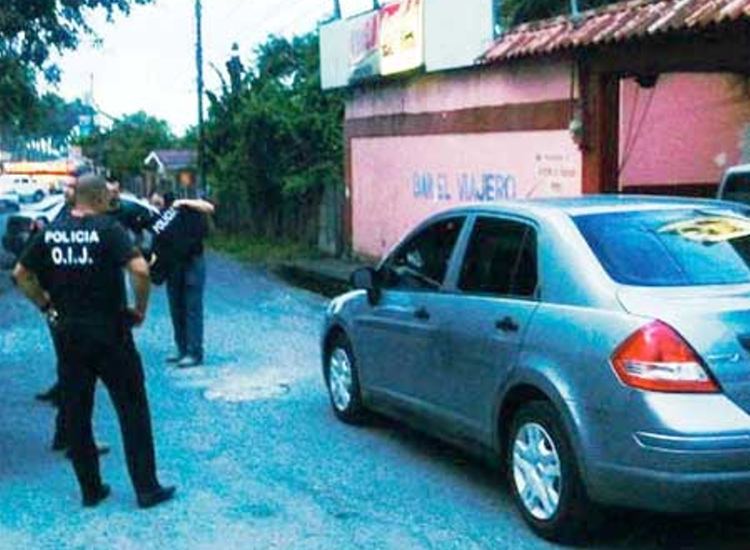
Guápiles. The owner of a bar in Guápiles de Pococí was arrested by the Organismo de Investigación Judicial (OIJ) suspected of prostitution of women.
The 60 year old man, identified by his last name Portuguez, was arrested Tuesday night in his bar, “El Viajero”, located some 40 metres east of the town’s soccer stadium.
The OIJ had been investigating the man and the bar for almost a year, on information that women were brought in from Colombia, the Dominican Republic and Nicaragua and allegedly forced to work in the bar as prostitutes.
According to authorities, the bar has been operating as a “prostíbulo” (brothel) for the last 35 years.
The OIJ, in their report, say customers would be charged between ¢12.000 (US$22) and ¢20.000 (US$37) for sexual services and suspect up to 45 women would be forced to work in shifts, in the 25 rooms on the premises.
Prostíbulos are common in San José, where more than 100 “massage parlours” operate legally under the guise of a “pension” (bread and breakfast). In Costa Rica, a “pension” is a short stay hotel – up to a few hours. The prostíbulos, in effect, rent the rooms to the women, as consulting adults, free to do whatever in the rooms.
Some prostíbulos operate as a “spa”, while others, though known to customers, in non-descript buildings or storefronts.
Many women prefer to work the massage parlours, with their regular hours, some working only “office hours”, from 9am to 5pm and in a safe environment, as compared to the “night” bars. They earn less per customer, can go home to their children and families at night.
Although numerous in San José, the number of prostíbulos are far less to non-existent in smaller towns.
Typically, women can be found to openly work as prostitutes in tourist towns like Jacó, Quepos, Playas del Coco and Tamarindo, areas that cater mainly to foreign tourists. Prices can range, on average between US$100 and US$200 per…
In other areas, women apply their trade in local bars, some openly, others discreetly.
Street walkers – prostitutes picking up “johns” in the streets- is not common in Costa Rica. However, some women will friendly up a potential customer in the local park or supermarket, for example.
Prostitution in Costa Rica is not illegal. But “pimping” (proxenetismo) is.
Under the Criminal Code, anyone “who promotes, induces, forces or recruits for prostitution persons of either sex” faces punishment of between two and fives years in prison.
The penalty can be double – up to ten years – when minors involved. The double penalty can also be applied in cases where deceit, violence or other form of intimidation or coercion takes place.
In the case of the El Viajero, the only arrest was that of the Portuguez, who is now in the custody of the Attorney General. The women and some customers found in the bar at the time were released.
Authorities say they are investigating whether other people are involved in the business of bringing in foreign women and forced into prostitution.

